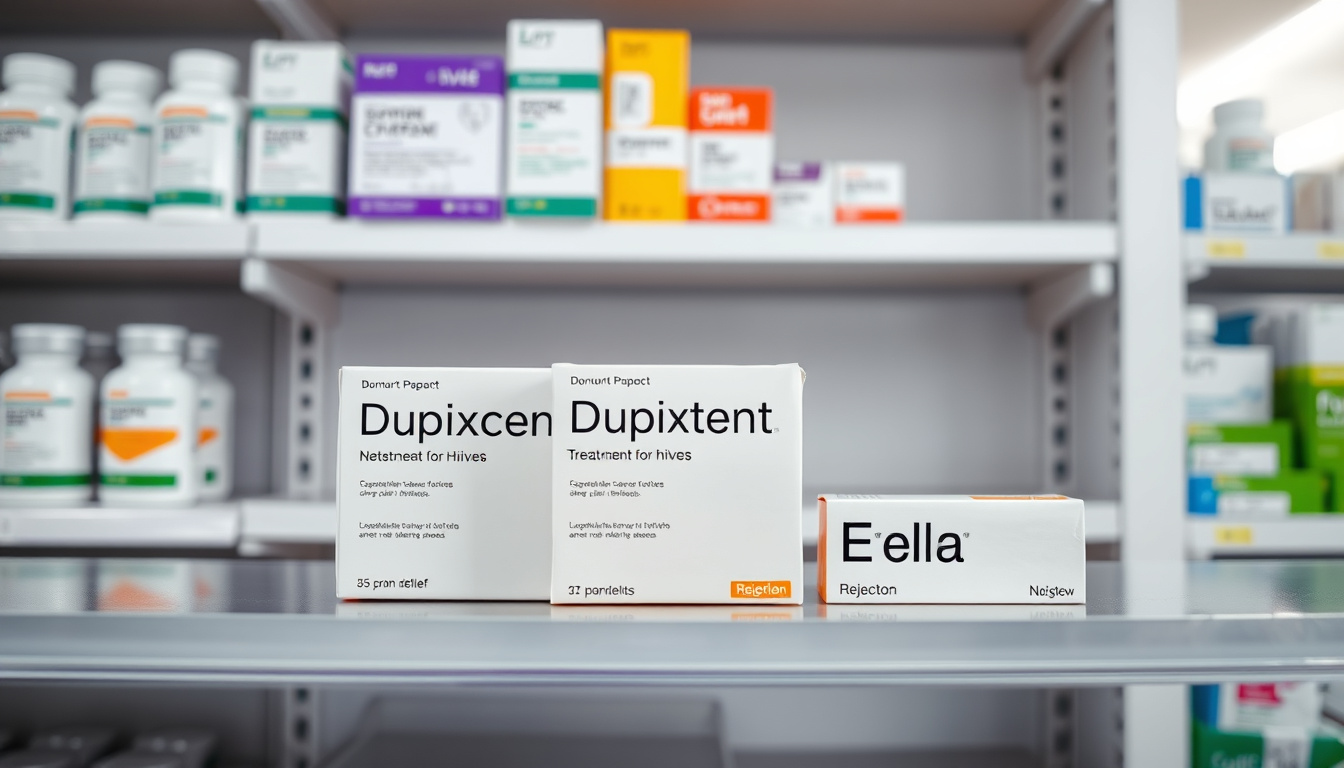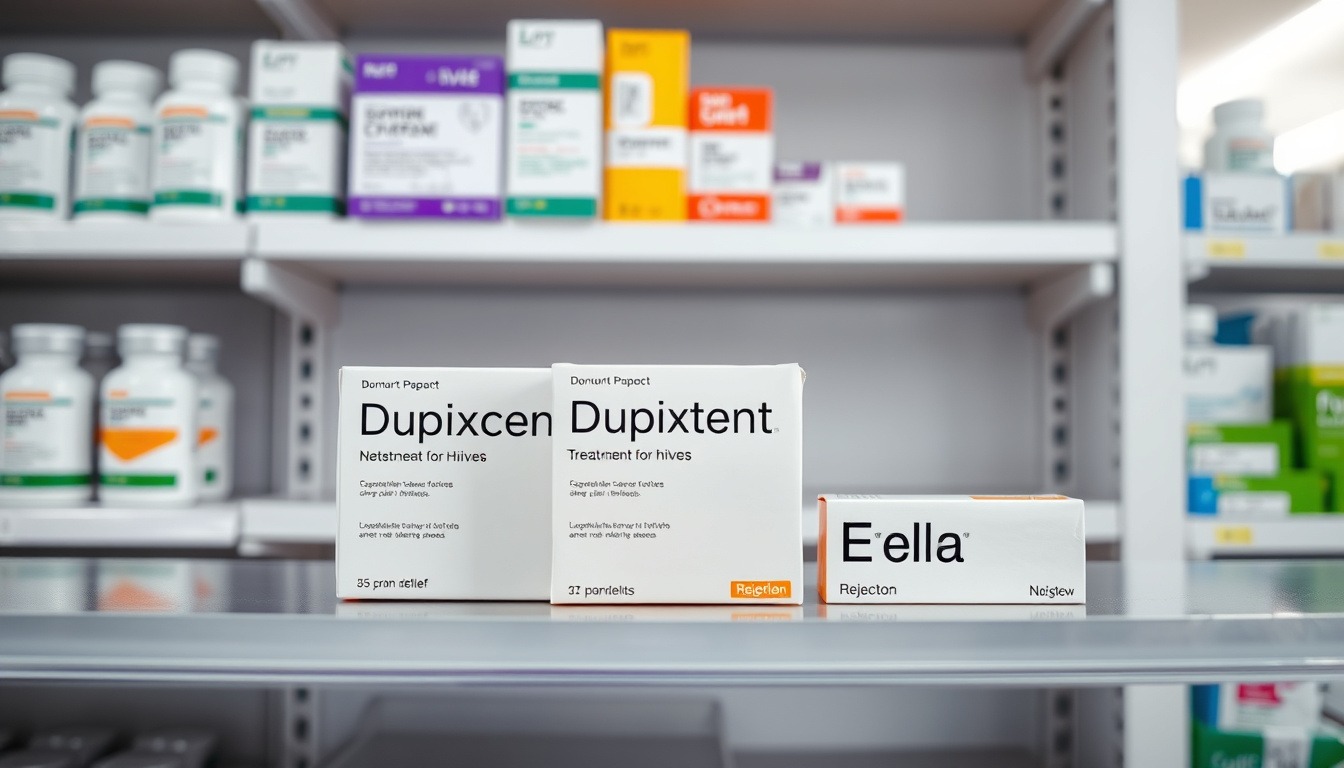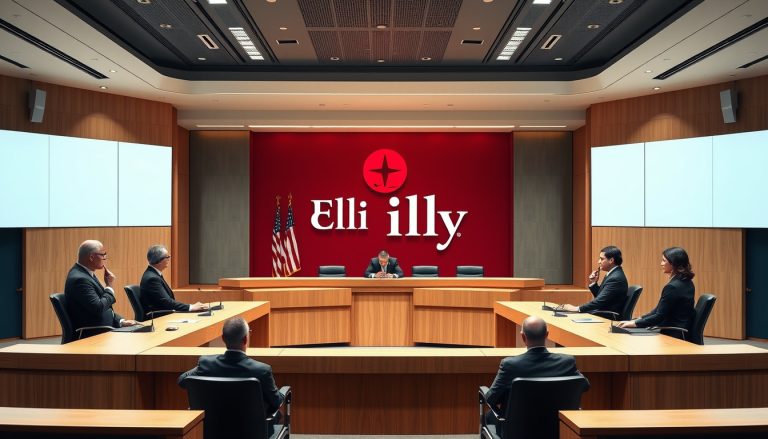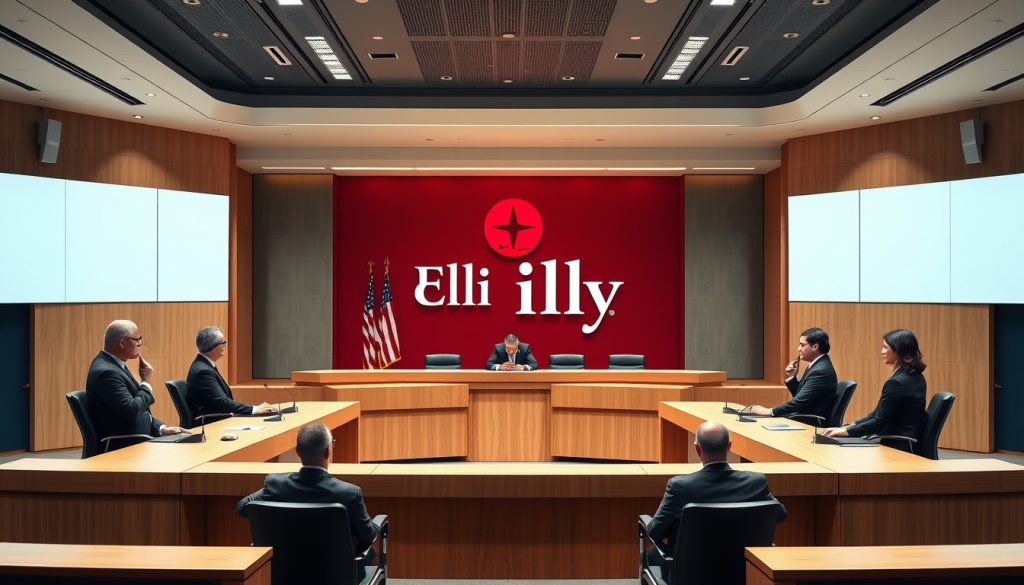In a significant move for the biopharma industry, the U.S.
Food and Drug Administration (FDA) has officially approved Dupixent (dupilumab) for the treatment of chronic spontaneous urticaria, commonly known as hives.
This approval represents a major advancement in addressing an often challenging and disruptive condition, providing new hope for patients suffering from persistent hives.
At the same time, the FDA delivered a setback to Regeneron Pharmaceuticals, as it rejected the company’s proposed new dosing plan for its other blockbuster drug, Eylea (aflibercept).
These developments not only highlight the dynamic nature of drug approvals but also carry important implications for biopharma professionals navigating an evolving landscape.

Key Takeaways
- Dupixent has been newly approved by the FDA for the treatment of hives.
- Regeneron’s Eylea had its new dosing plan rejected, raising concerns among investors.
- The contrasting FDA decisions highlight the fluctuating fortunes of Regeneron’s drug portfolio.
Approval of Dupixent: A New Hope for Hives Treatment
hives, or chronic spontaneous urticaria (CSU), thereby expanding its already impressive therapeutic arsenal.
Dupixent, which has previously been approved for conditions such as asthma and eczema, showcases the potential of biologics in managing chronic inflammatory diseases.
The FDA’s decision is backed by extensive clinical trials demonstrating Dupixent’s efficacy in reducing hive symptoms and improving patients’ quality of life.
The approval also highlights the ongoing significance of targeted therapies in the biopharma industry, where precision medicine continues to reshape treatment landscapes.
With this new indication, Dupixent is set to play a crucial role in the lives of patients suffering from this often debilitating condition, and it reinforces Regeneron’s position as a leader in innovative therapeutics.
As the market evolves, stakeholders in the biopharma sector must consider how such advancements influence treatment protocols and patient management strategies.
Rejection of Eylea’s New Dosing Plan: Implications and Reactions
In a significant development for the biopharma industry, the FDA has announced its decision regarding Regeneron’s Eylea, rejecting its proposed new dosing regimen.
This decision comes alongside the approval of Dupixent, highlighting a dichotomy in the regulatory landscape faced by major pharmaceutical players.
The FDA’s rejection of Eylea’s dosing plan is particularly impactful, as Eylea is Regeneron’s flagship product, generating substantial revenue through its treatment of various eye conditions.
Industry analysts believe that this rejection could have far-reaching implications, potentially affecting Regeneron’s market position and future product strategies.
Reactions from the market have been mixed; some analysts express concern over the impact on sales projections, while others see it as a challenge that could streamline the company’s focus and innovation efforts.
The juxtaposition of these two FDA decisions underlines the unpredictable nature of drug approval processes and the critical importance of adaptive strategies within the biopharma sector.















